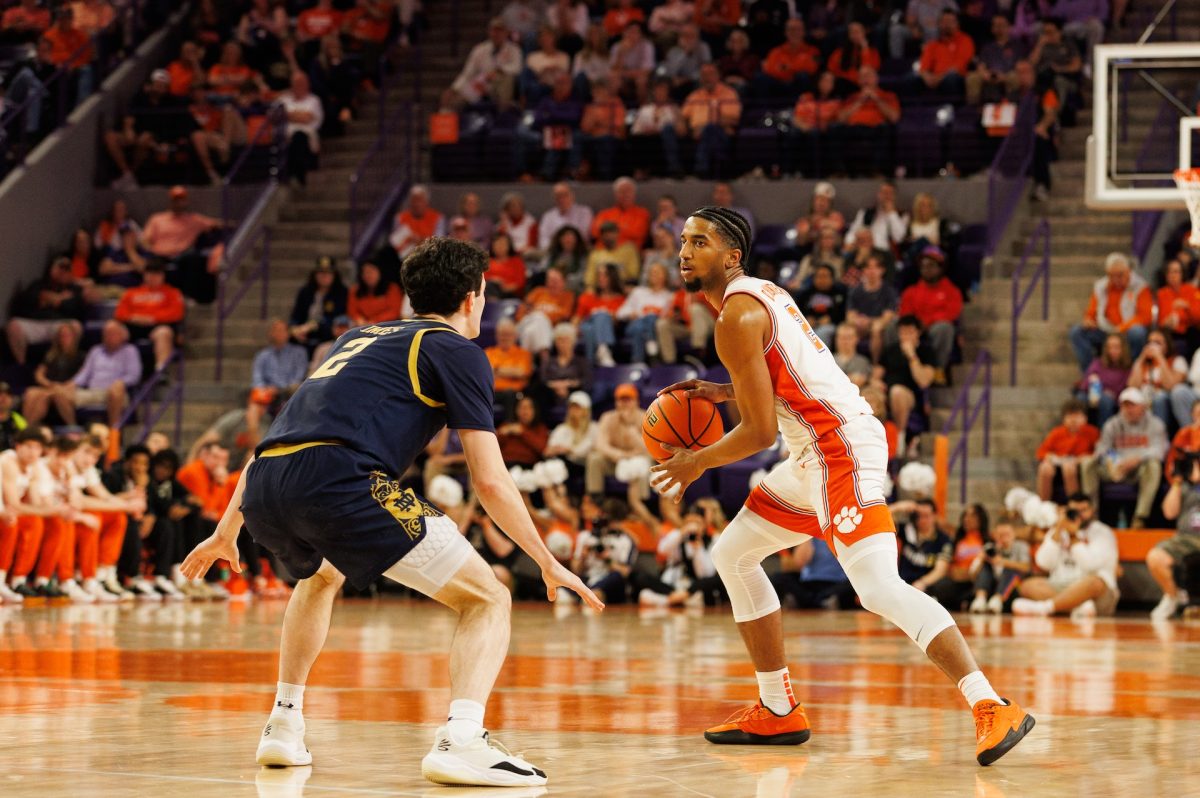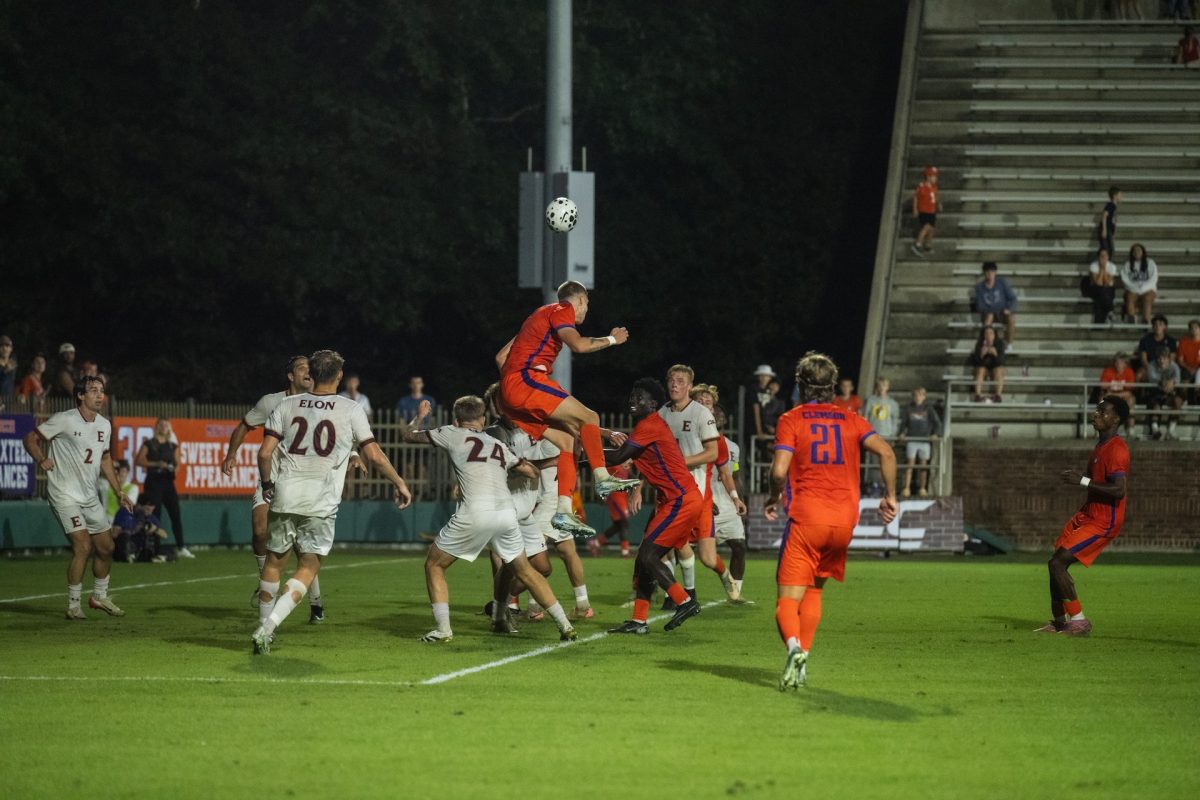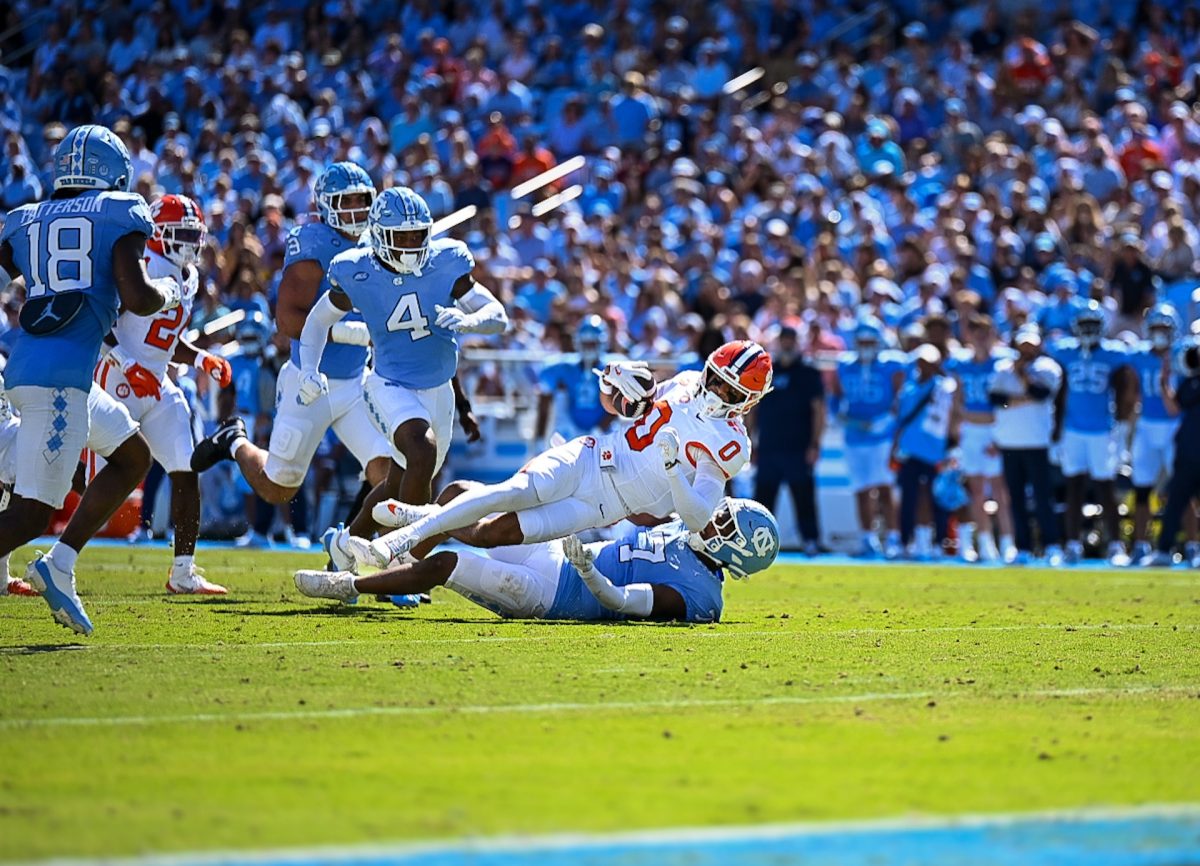“En garde!”
More than just a French phrase commonly associated with “The Three Musketeers,” that exclamation serves as the calling card for a sport that is flourishing at Clemson University. The Clemson Fencing Club is an organization that has introduced the long, storied craft of fencing to countless students since the club’s founding in the early 2000s. Student-run and open to everyone on campus, regardless of experience level, the organization is part of USA Fencing and regularly competes in tournaments throughout the fall and spring semesters.
Like a typical fencing team, Clemson’s fencing squad consists of the three primary fencing disciplines — epee, foil and saber — and is divided into a men’s team and a women’s team. Students serve as coaches as well, with certain specialists in each discipline providing tutelage to others on the team. Currently composed of more than 50 students, the Clemson Fencing Club boasts a diverse array of students, but a common thread for the members is the role the club played in introducing them to the sport of fencing.
Taylor Kellner, a senior civil engineering major and the president of the Clemson Fencing Club, estimates that approximately 80% of the club’s active members were completely new to the combat sport upon joining, whereas the others competed in high school. Carlo Mellone serves as a special outlier on the team, as he has competed in world championships and boasts talent on par or better than many of the NCAA’s top fencers. Mellone is in good company, though, as Clemson fields one of the best club fencing teams in the nation, having won the national championship in the men’s team event in 2016.
“We’ve definitely established ourselves as one of the premier clubs,” said Kellner.
Having been introduced to the club at Tiger Prowl, Clemson University’s student organization and involvement fair, Kellner was brand new to fencing upon joining. A few years later, Kellner was so passionate about the sport that he became club president. He has previously dedicated an entire spring break to training with an Olympic fencing coach, indicating his commitment to being the best fencer he can be.
“I fell in love with it the first day,” Kellner said of taking up fencing. “I loved the feeling of competition.”
The Tiger’s own Rebecca West, who is a senior majoring in both English and mechanical engineering, serves as the vice president of the club and shares the passion for fencing that Kellner has. Moreover, the accessibility and charm of fencing appeal to her.
“Fencing is a nerdy, quirky thing to learn,” West said with a laugh, “and you don’t have to be the most athletic person out there to be able to do it.”
Like Kellner, West joined the Clemson Fencing Club as a freshman after learning about it via Tiger Prowl. While Kellner shines in saber bouts, West shows out in foil bouts. In fact, she was a foil coach for the team when she was just a sophomore. West has previously held the position of safety officer for the team. Now, on top of competing as an A-strip foil fencer, she is a representative of the club through her role as vice president, which entails organizing club travel and planning fencing events hosted on Clemson’s campus.
“I tried it out because I wanted to make friends,” Rebecca said when explaining her rationale for joining the club, “and I stayed because the environment was fun.”
Once upon a time, Clemson University fielded an NCAA fencing team, which was eventually dropped altogether, and the Clemson Fencing Club is doing a stellar job of keeping that fencing legacy alive and thriving. The strong camaraderie of the fencers is what makes the club so special, and the friendly, accepting environment promoted by the organization is what keeps membership high.
“It was very open,” Keller said while recalling becoming a member of the club. “People were very accepting of others almost immediately, and it was very easy to find a friend group.”
Learning the art of swordsmanship requires quite the commitment, which is why, during the school year, Clemson fencing practices three times per week in Fike Recreation Center. Their practice comes to fruition in tournaments, as the club participates in team and individual tournaments, oftentimes squaring off against NCAA fencing teams. In recent years, the club has traveled to tournaments throughout the Southeast and has also ventured to tournaments in the Midwest and Northeast.
The Temple Open, which is held on Temple University’s campus in Philadelphia, is an event that Clemson consistently takes part in. Clemson fencing has also competed on the campuses of other universities, such as Drew, Florida, Georgia, Georgia Tech, Notre Dame and Tennessee. The club hosts an annual tournament of its own, the Tiger Open, an individual competition drawing competitors of all ages and skill sets from far wide. Roughly 300 fencers usually compete in the Tiger Open, and the entire event, from the booking of the armorer and referees to the reporting of results to fencing organizations, is carried out by the students in the Clemson Fencing Club.
“As far as the actual fencing details and travel and figuring out the logistics of the club, this is a completely student-run organization,” West said.
Furthermore, the SIFA Championships and USACFC National Championships provide Tiger fencers with a chance to shine each year. Clemson fencing has garnered a bevy of individual achievements and team successes over the years, such as an impressive fifth-place showing in the 2018 national saber competition. As far as the club-level competitions are concerned, bouts are organized via pools, and the hierarchy of fencers for each team determines who fences on the A-strip, B-strip, C-strip and so forth.
Leadership for the club involves the five student positions of president, vice president, secretary, treasurer and armorer. Dr. Michael Burr, a Clemson mathematical sciences professor, is the club’s advisor, and Clemson Campus Recreation helps facilitate Clemson fencing’s events. A combination of club dues, profits earned by the club’s concession stand at Clemson football games and financial resources provided by the Student Funding Board provides the Clemson Fencing Club with the capital it needs to operate. The funds cover expenses pertaining to equipment, events and travel.
Naturally, the COVID-19 pandemic has drastically curtailed the club fencing calendar, resulting in Clemson fencing holding online practices for a few months during the fall semester. The team was able to return to in-person action in October 2020, and, in February, some of Clemson’s fencers competed at a tournament in Athens, Georgia. While the majority of the club fencing tournaments have been canceled this school year, the members of the Clemson Fencing Club have remained committed to honing their skills and having loads of fun in the process.
Social events, including a formal, are on the horizon for the club as the spring semester nears its conclusion. More importantly, a return to normalcy within the club fencing community looms, and, thanks in large part to the leadership of Kellner, West and many others, the Clemson Fencing Club is certain to be “en garde” and ready to riposte its way to continued success as soon as the right-of-way is given.









